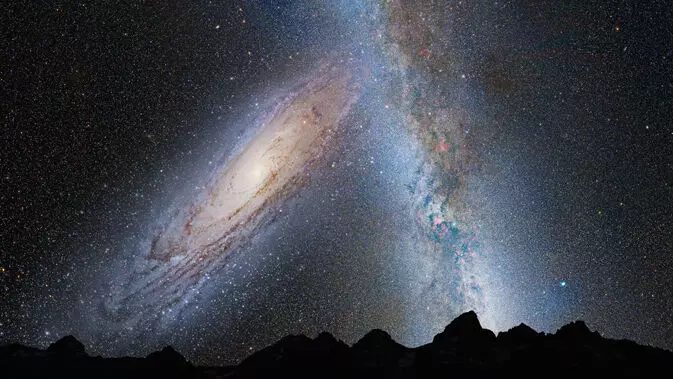
Light from merging of 2 galaxies that happened 3 billion years ago just reaching earth
text_fieldsA pair of closely bound supermassive black holes have been discovered by astronomers as two galaxies merge, giving a glimpse into the universe's history. The light from this event is just reaching us now, although it happened when the universe was only three billion years old.
Galactic mergers cause rapid star formation, as well as fueling the supermassive black holes at their centre, turning them into bright quasars that outshine the rest of the galaxy.
The discovery of the pair of close supermassive black holes during the "cosmic noon," an early period in the universe's history characterized by bursts of frantic star formation, is the first confirmed detection of its kind. Some of these mergers eventually become massive elliptical galaxies with black holes many billion times the mass of our Sun.
While astronomers have observed many merging galaxies with more than one quasar, this particular discovery is unique because such instances were rare when the universe was only a quarter of its current age. As a result, finding them was challenging since most black-hole pairs were too close together to distinguish individually.
For astronomers to definitively detect such a pair, the two supermassive black holes need to be both actively accreting and shining as a quasar at the same time. However, both these phenomena are rare, with statistically only one actively accreting supermassive black hole for every 100 at a given time.
Additionally, while every quasar is a black hole, very few black holes are quasars. Consequently, finding two accreting black holes that are quasars and extremely close to each other is a rarity.






